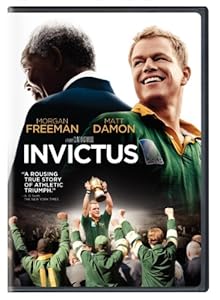"The notion of emptiness generates passion," wrote the great poet Theodore Roethke (1908-1963). When I first came across this line, many years ago, it occurred to me that the word "notion" is most significant. "Notion" means that you've had a taste, a vision, an inkling, a snippet of something -- enough to alert you to its possibilities and whet your appetite for more.
I was quite young when I had my first taste of passion. From my earliest childhood, my parents read to me, and I saw that books were full of possibilities. But since I couldn't yet read, I had to pester them to read to me, which they often didn't have time for. I remember being 4 years old and looking out a high-rise window over the myriad signs that decorated New York City rooftops. My companion was an 8-year-old girl named Brucia. "Can you read everything you see?" I asked her wistfully. When she assured me she could, I remember wondering if I would ever reach that point where I could read everything I saw. (Here is the "emptiness" of Roethke's line.) Then I could get into books anytime I wanted without being dependent on my parents. So in my determined way, I pestered adults for help and taught myself to read.
When I was 8, we made papier mache finger puppets in class. Mine was of my father, featuring short lengths of yarn pasted vertically around his head as a frame for his baldpate. I received a lot of praise for my cleverness. Over the weekend a mouse in the classroom came and ate the nose off my puppet, leaving behind a disfiguring hole. (The paste was an edible mix of flour and water.) My teacher was worried about my reaction. How would I feel about having my work so unforgivingly destroyed? Much to her surprise, for me it was no big deal. Even at that tender age I realized that the puppet itself didn't matter. I could always make another, and no one could take that ability away from me. That same year my favorite doll fell off the bed onto her nose and it, too, was irrevocably marred. I was inconsolable and vowed to myself that I would never invest so much emotional energy into a possession. The loss was too hard to bear. Acquiring skills and creating new things thus became my passions.

Image via Wikipedia
Passion can be described as a feeling, but it manifests itself in the world as behavior, strong behavior that recurs frequently despite obstacles, setbacks, and long periods without obvious feedback. Passionate people are often unreasonable; they persist in spite of off-putting events or lack of approbation and support that might make others quit. "The reasonable man adapts himself to the world around him. The unreasonable man persists in his attempts to adapt the world to himself. Therefore, all progress depends on the unreasonable man." (George Bernard Shaw, 1903 play "Man and Superman.") [GBS was a misogynist so he was not about to include women in such a profound statement.] Behaviorists know that strength of behavior is built with payoffs that are highly intermittent and might only be perceived as a reward by the individual exhibiting the behavior. The well-struck tennis ball becomes its own reward and is a first step in the learning curve of a potential champion. Hitting the ball in a racket's "sweet spot" feels good. But the pursuit of a world-class trophy requires a commitment and a faith in one's own abilities that defies the inevitable (reasonable) naysayers who know that the odds of reaching this pinnacle are extremely long. "Invictus" is one of my new favorite films. It depicts an unreasonable Nelson Mandela, played brilliantly by Morgan Freeman, who believed that he could unite his post-apartheid nation if only the rugby team, the Springboks, could do the impossible and win the World Cup. He had formidable strikes against

Cover of Invictus
pulling this off -- the team itself was an underdog that didn't believe itself capable of such a feat, and the newly empowered black citizens of the "newly christened Rainbow Nation, South Africa" hated everything that stood for their former Afrikaner oppressors, especially this team. They were certainly not about to root for it. Mandela said, "It always seems impossible until it's done."
It seems as if the world of education is afraid of passion. It's even afraid of the word "passion." Currently, we could claim that teaching to the test is fostering apathy, the exact opposite of passion, in both teachers and students. Passion produces unlikely results. My own passions have led me to an improbable career as an author and speaker and now a founder of a new business (www.inkthinktank.com) that uses technology to tap into the passions of other award-winning nonfiction authors for the benefit of teachers and students. We authors work against all odds creating works of literature to engage, inform and inspire children about the real world. The intent for our books is not radical. If we want kids to learn and think about the real world and develop a passion for learning, why not give them great reading material? Yet our books are not in most classrooms where they can do the most good. My problem: What can I do to change this small part of the educational landscape? The answer: Whatever it takes.



Leave a comment